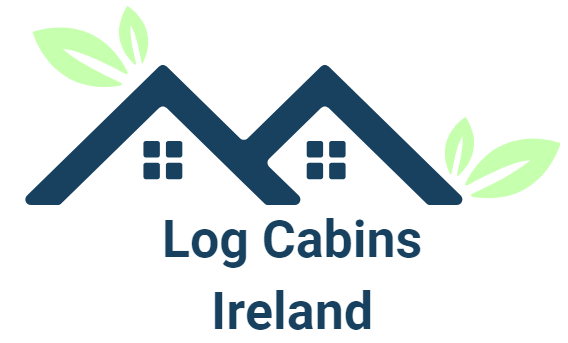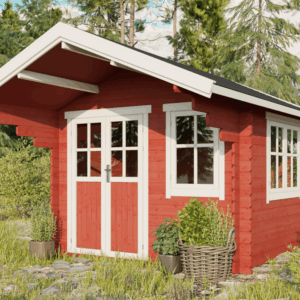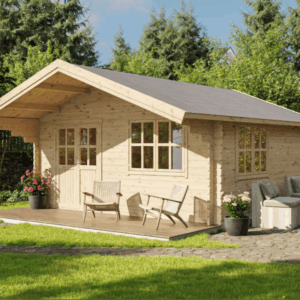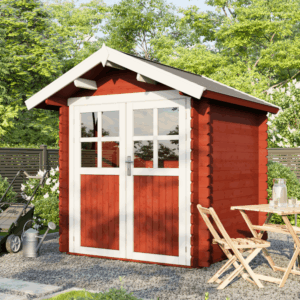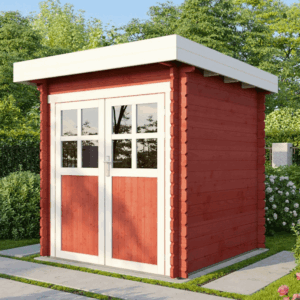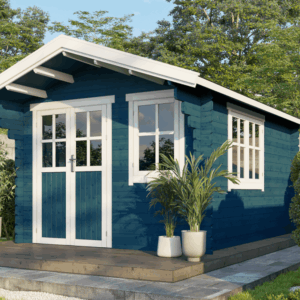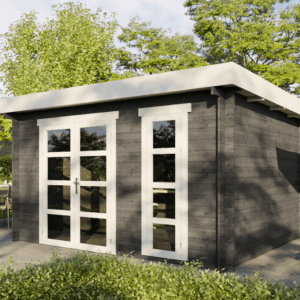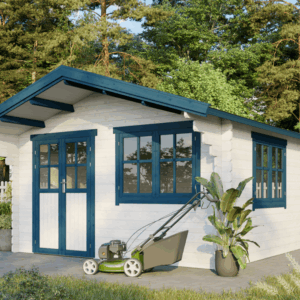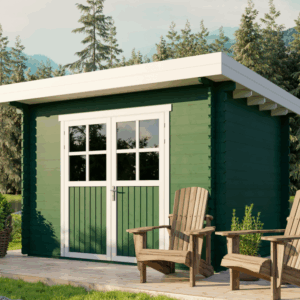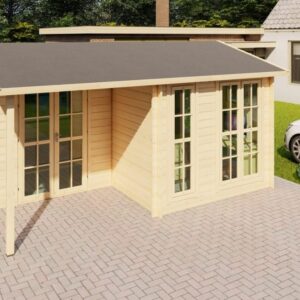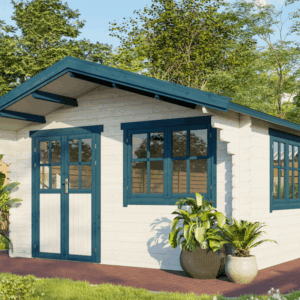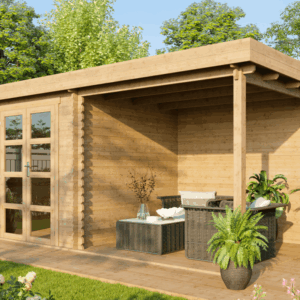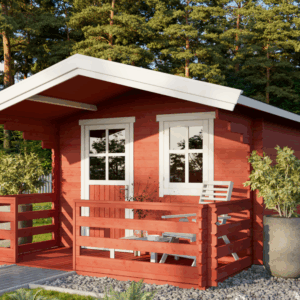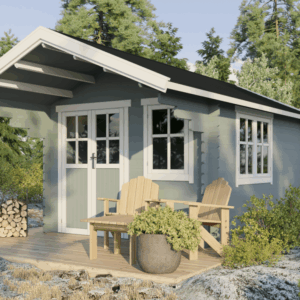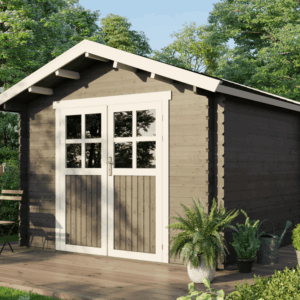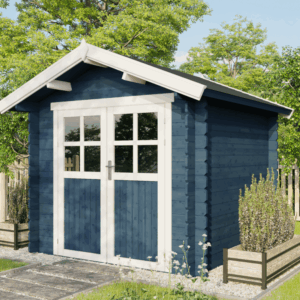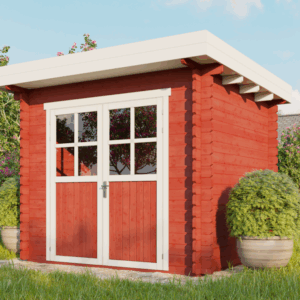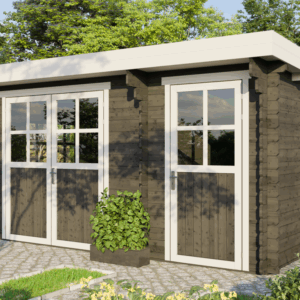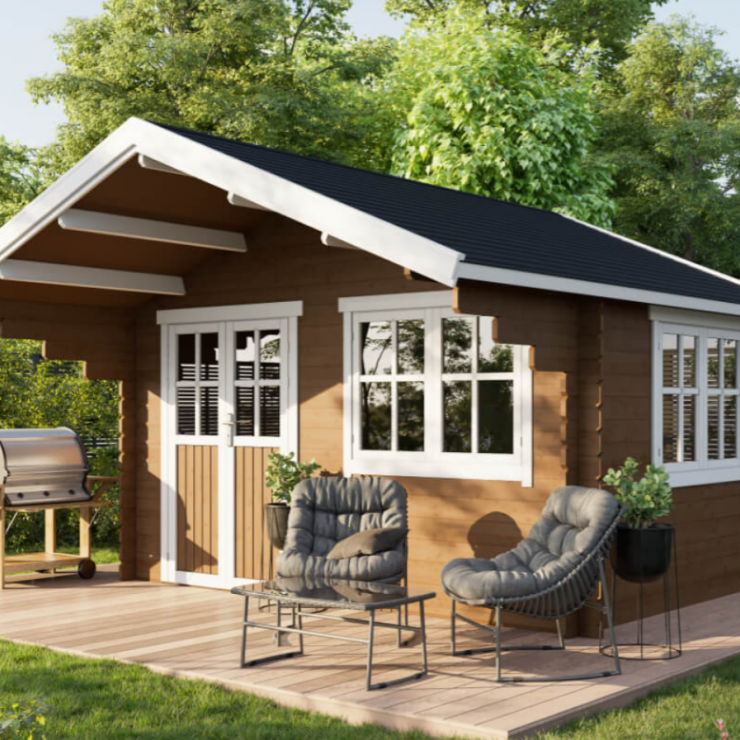Imagine waking up to the scent of pine, the gentle rustle of leaves, and the warmth of natural wood surrounding you. For many, the allure of a log cabin conjures images of tranquil escapes, cosy evenings by the fire, and a profound connection with nature. In Ireland, this dream is more accessible than you might think, especially when considering the vibrant market for second-hand log cabins. These pre-loved structures offer a unique opportunity to own a piece of rustic charm without the hefty price tag of a new build. This guide will explore the ins and outs of finding and purchasing a second-hand log cabin in Ireland, helping you navigate the process with confidence.
The appeal of a log cabin extends far beyond its aesthetic. They are renowned for their natural insulation properties, contributing to lower heating costs and a cosy, comfortable living environment year-round. Furthermore, the natural materials used in their construction are often sourced sustainably, aligning with a growing desire for eco-friendly living. Opting for a second-hand cabin not only makes this lifestyle more affordable but also gives a new lease of life to a structure that might otherwise be underutilised or even dismantled.
Ireland’s varied landscape provides countless idyllic settings for a log cabin, from the rolling hills of the countryside to picturesque coastal locations. The availability of pre-owned cabins means you can often find them already situated in these desirable spots, saving you the significant cost and effort of land purchase and planning permission for a new build. This makes the dream of a serene Irish retreat a tangible reality for a broader range of budgets and aspirations.
Why Consider a Second Hand Log Cabin in Ireland?
The primary driver for many individuals seeking second-hand log cabins is the significant cost savings. New log cabins, while beautiful, can represent a substantial investment. Pre-owned options, however, often come at a fraction of the original cost, making them an attractive proposition for those on a tighter budget or looking for a more accessible entry into the log cabin lifestyle. This financial advantage opens doors to owning a property in stunning locations that might otherwise be out of reach.
Beyond the economic benefits, buying second-hand contributes to a more sustainable approach to housing. It’s a form of upcycling, giving an existing structure a new purpose and reducing the demand for virgin timber and the environmental impact associated with new construction. This aligns perfectly with a growing global consciousness around environmental responsibility and resource conservation, allowing you to live your dream while making a positive impact.
Another compelling reason is the potential for immediate occupancy. Many second-hand cabins are already erected and, in some cases, may even come with existing furnishings or utilities. This can dramatically shorten the timeline from purchase to enjoyment, allowing you to start your tranquil retreat much sooner than if you were to commission a new build from scratch. The ‘turnkey’ nature of some listings can be a huge draw for those eager to escape the city buzz.
Where to Find Second Hand Log Cabins for Sale Ireland
The search for a second-hand log cabin in Ireland requires a multi-pronged approach, tapping into various online and offline resources. Websites specialising in used property, holiday homes, and even general classifieds often list these unique dwellings. Keeping a regular eye on these platforms is crucial, as desirable cabins can be snapped up quickly.
Local estate agents, particularly those in rural areas, can be invaluable allies in your search. They often have a finger on the pulse of local property transactions and may be aware of cabins coming onto the market before they are widely advertised. Don’t hesitate to register your interest with them and clearly articulate your specific requirements for a log cabin.
Networking within communities that embrace the log cabin lifestyle can also yield results. Online forums, social media groups dedicated to self-builds, eco-living, or even specific regions of Ireland can be excellent places to connect with people who might know of available properties or have them to sell directly. Word-of-mouth is a powerful tool, especially for niche markets like these.
Online Marketplaces and Property Portals
Websites like Daft.ie, Property.ie, and Buyandsell.ie are primary go-to resources for any property search in Ireland, including log cabins. These platforms often feature a wide range of listings, from permanent residences to holiday homes. It’s advisable to set up saved searches with specific keywords like “log cabin,” “chalet,” “log house,” and the counties you are interested in to receive instant notifications when new listings appear.
Beyond the major portals, explore dedicated websites that focus on unique properties or timber-framed homes. Sometimes, companies that specialise in building new log cabins also have a section for pre-owned units they’ve facilitated the sale of. Additionally, general classifieds websites can sometimes surprise you with less formally listed, but perfectly good, second-hand log cabin options.
Local Auctions and Private Sales
Keep an eye on local auction house listings, as log cabins, particularly those on land, can sometimes be sold through this method. This can be a good way to acquire a property, but it often requires quick decisions and a solid understanding of the process. Private sales, advertised through local notice boards, community newsletters, or simply word-of-mouth, can also present excellent opportunities.
Engaging with local communities is key to uncovering these less formal opportunities. Visit local shops, pubs, and community centres in your desired areas and inquire about any available properties. Sometimes, a simple conversation can lead you directly to a seller who hasn’t yet listed their cabin publicly. This personal approach can uncover hidden gems.
What to Inspect When Buying a Second Hand Log Cabin
Purchasing a second-hand log cabin requires thorough inspection to ensure you’re making a sound investment. The structural integrity of the timber is paramount. Look for signs of rot, insect infestation (such as woodworm), or significant warping, especially at the base of the logs and around window and door frames. A professional survey is highly recommended to identify any hidden issues.
The roof is another critical element that needs careful examination. Check for any signs of leaks, damaged or missing tiles, and the overall condition of the roofing material. A compromised roof can lead to significant water damage within the cabin, impacting the timber and interior finishes. Ensure the gutters and downpipes are clear and in good working order to prevent water pooling.
The condition of the foundations and the cabin’s connection to the ground are also vital. Ensure there is no subsidence or cracking. If the cabin is on stilts, check their stability and condition. The overall ‘pitch’ of the cabin should be level; any noticeable tilting could indicate underlying foundation problems that require immediate attention.
Structural Integrity of the Logs
The logs themselves are the heart of your cabin, so their condition is of utmost importance. Carefully inspect each log for cracks, splits, and signs of decay. Pay close attention to the ends of the logs where moisture can accumulate and lead to rot. Gently probe any suspicious areas with a sharp object to check for softness, which indicates decay. Small, superficial cracks are often normal in timber, but deep, gaping fissures are cause for concern.
Look for evidence of insect activity, such as small holes or sawdust. Common culprits include woodworm and termites, which can significantly weaken the timber over time. If you suspect an infestation, it’s essential to get professional advice on treatment options. A comprehensive pest inspection should be part of your due diligence process before making a purchase.
Roof and Waterproofing
A well-maintained roof is essential for protecting your log cabin from the elements and preventing costly water damage. Examine the roofing material for any signs of wear, damage, or missing sections. Check for moss or algae growth, which can indicate moisture retention. Inspect the flashing around any chimneys or skylights for gaps or damage, as these are common entry points for water.
Don’t forget to check the gutters and downpipes. Blockages can cause water to overflow and seep into the cabin’s walls or foundation. Ensure they are clear, securely attached, and directing water away from the structure. If the cabin has undergone recent repairs, try to ascertain their nature and quality.
Windows, Doors, and Insulation
The efficiency of your cabin’s windows and doors directly impacts its energy performance and comfort. Check for draughts, ensure they open and close smoothly, and inspect the seals for any signs of deterioration. Older cabins may have single-glazed windows, which can be a significant source of heat loss, so factor in potential upgrade costs if this is the case.
Investigate the insulation. While logs themselves provide some insulation, additional insulation in the roof and floor is often necessary for optimal comfort and energy efficiency, especially in the Irish climate. Inquire about any upgrades that have been made to the insulation since the cabin was originally built. Proper insulation can drastically reduce your heating bills and enhance the overall liveability of the cabin.
Renovating and Maintaining Your Second Hand Log Cabin
Once you’ve found your dream second-hand log cabin, the journey of restoration and ongoing maintenance begins. Log cabins, with their natural materials, require specific care to ensure their longevity and beauty. Regular cleaning and sealing of the exterior timber is crucial to protect it from the harsh Irish weather, which can include rain, wind, and sun exposure.
Interior maintenance is equally important. This involves keeping the timber clean, addressing any minor wear and tear, and ensuring the interior climate is controlled to prevent excessive moisture or dryness. Understanding the unique needs of a timber structure will allow you to preserve its charm and structural integrity for years to come.
When embarking on renovations, always prioritize preserving the cabin’s natural aesthetic. Many buyers are drawn to log cabins for their rustic charm, so avoid making drastic changes that detract from this appeal. Small, thoughtful upgrades can significantly enhance comfort and functionality without compromising the cabin’s character.
Sealing and Preserving the Timber
The exterior logs of your cabin are its first line of defence against the elements. Regular sealing and staining are vital to protect the timber from UV damage, moisture ingress, and insect attack. The frequency of this task will depend on the type of stain or sealant used and the exposure of your cabin to the weather, but typically it’s a process that needs attention every few years. Choose high-quality products specifically designed for log homes to ensure the best protection.
Before applying any sealant, ensure the timber is clean and dry. Power washing can be an effective way to remove old finishes and dirt, but care must be taken not to damage the wood. Always allow the logs to dry thoroughly before applying new treatments. This step is critical to the long-term health and appearance of your cabin.
Addressing Moisture and Pests
Moisture is the most significant threat to a log cabin’s integrity. Ensure good drainage around the cabin’s foundation and keep vegetation trimmed back to allow for air circulation. Regularly check for any signs of leaks or water penetration, especially after heavy rain. Promptly address any issues to prevent rot and mould from developing. Investing in a dehumidifier for the interior can also help manage humidity levels, particularly in damper climates.
Pest infestations, such as woodworm, can cause considerable damage. Regular inspections are essential to catch any signs early. If an infestation is detected, consult with pest control professionals for effective treatment options. Preventative measures, such as using insect-repellent finishes, can also help to deter pests in the first place.
Interior Upgrades and Comfort
While maintaining the rustic feel, you can make numerous interior upgrades to enhance comfort and modernise your cabin. This might include upgrading the heating system for better efficiency, installing modern bathroom and kitchen facilities, or improving lighting to create a more welcoming atmosphere. Focus on sympathetic renovations that complement the existing timber structure rather than clashing with it.
Consider the natural insulation properties of logs and how you can further enhance them. Adding insulation to the roof space and under the floorboards can significantly improve energy efficiency and reduce heating costs. This will make your cabin more comfortable to live in throughout the year, especially during the colder Irish months. Think about how you can best utilise natural light to enhance the interior space.
The Investment Potential of a Second Hand Log Cabin
While many purchase log cabins as a personal retreat, they can also represent a sound investment. Their unique appeal and the growing demand for alternative and eco-friendly housing options can lead to strong resale values, particularly if the cabin is located in a desirable area. Properly maintained cabins in picturesque locations often attract a premium in the property market.
The potential for rental income is another significant investment advantage. A well-presented and well-located log cabin can be an attractive holiday let, offering a unique experience for tourists seeking to escape the ordinary. Researching local tourism trends and the potential rental yields in your chosen area is a wise step before purchasing with investment in mind.
Investing in a second-hand log cabin can be a financially savvy move, especially when compared to the cost of building from scratch or purchasing a comparable property in a more conventional style. It’s a way to acquire a property with character and potential for appreciation, offering both personal enjoyment and financial return.
The initial cost savings of a pre-owned cabin leave more budget for potential renovations or improvements, which can further enhance its value. This ability to add value through strategic upgrades is a hallmark of many successful property investments. Carefully planned improvements can significantly boost market appeal and command higher prices when it comes time to sell.
Conclusion: Your Rustic Irish Dream Awaits
Finding a second-hand log cabin for sale in Ireland is an exciting prospect that offers a pathway to a more natural, tranquil, and potentially more affordable lifestyle. The market, while niche, is active, and with diligent searching, thorough inspection, and a commitment to proper maintenance, your dream rustic retreat can become a reality.
By understanding the benefits, knowing where to look, and being prepared for the inspection and maintenance involved, you can confidently navigate the process of acquiring a pre-loved log cabin. The charm, comfort, and unique connection to nature that a log cabin provides are truly unparalleled.
Embrace the adventure, do your homework, and get ready to create lasting memories in your very own slice of Irish paradise. The scent of pine, the warmth of wood, and the peace of the countryside are waiting. Your second-hand log cabin in Ireland is not just a property; it’s an invitation to a lifestyle.
“`
